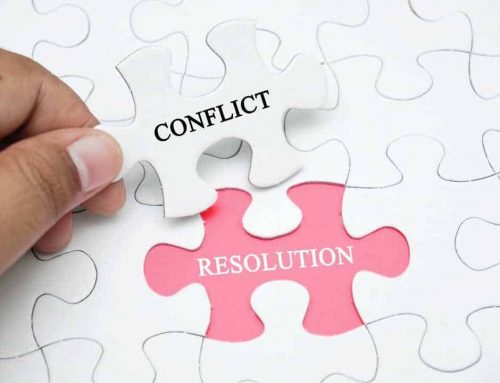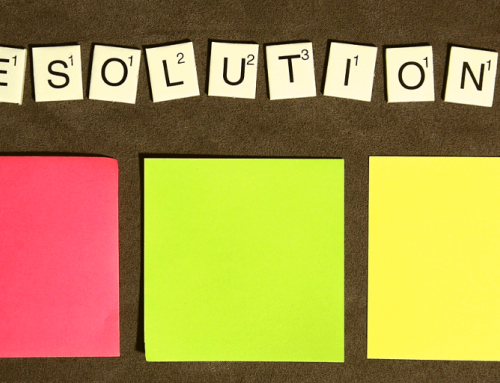It is inevitable that, at some point in our lives, we will find ourselves in a conflicted situation. People, by their very nature, don’t always agree. It’s important to manage these situations in the most constructive and least confrontational manner possible, and that generally means getting the right help from a professional, if it is needed.
Here’s everything you need to know about the dispute resolution process, how it can help you mitigate and manage conflict, and what you can expect from a professional dispute manager…
What Is Dispute Resolution Process?
The dispute resolution process describes the process of resolving issues between two parties that are locked in a conflict. It’s one step up from handling the issue entirely by yourself, and a sizeable step down from the alternative (and frequently first considered option) of court.
Dispute resolution is a step-by-step process that helps all parties reach a solution that is agreeable and beneficial to everyone involved.
A third party individual or group will step in to aid you in settling your disagreements, and support you as you choose the right course to settle the issue at hand. Typical issues that are addressed using dispute resolution are family conflict, commercial disagreements, and industrial concerns.
What Does The Dispute Resolution Process Involve?
During the process of dispute resolution, there are many methods that can be used, including:
- Negotiations
- Hearings
- Trials
- Mediation
- Arbitration
- Litigation
The most commonly used methods are mediation, arbitration, and litigation, or a combination of the three. Each method provides a different strategy to help resolve issues and different methods to drawn upon when reaching decision or resolution.
Method One: Mediation
Mediation is a discussion with the help of a neutral third party solicitor who helps you resolve the problems you face, based on a formal discussion between all parties. This method is usually used in cases relating to personal injury, small claims, or probate, but can also be helpful when it comes to managing family legal issues. It is a private way for all parties to ask each other questions and reach an agreement by themselves, without the need to involve anyone else.
In some cases, your personal lawyer may check over an agreement to make sure that all your legal rights are protected and it is a fair agreement, before it’s put in writing.
Some solicitors have now started training as mediators which allows them to more easily settle disagreements through effective methods that are also fully informed by sound legal judgement.
What Are The Positives And Negatives Of Mediation?
Mediation is an effective way to manage a dispute that allows both parties to express how they feel and try and resolve their issues amicably.
One problem with mediation is that, while it may be cheaper, it’s not always suitable for issues that are more complex, particularly if all parties aren’t capable of acting amicably with each other. Divorce, for example, cannot always be settled through mediation if there is a lot of hostility between the couple.
Method Two: Arbitration
Arbitration involves a third party solicitor acting as a judge to actively resolve the issues. Your arbitrator will be held accountable for ensuring all the problems are resolved, engaging with all sides of the argument and providing or collecting relevant evidence, before making a decision that is suitable for all parties.
What Are The Positives And Negatives Of Arbitration?
Arbitration is a private meeting that, like mediation, is less expensive than litigation but has the additional bonus of a figure of authority who is in a position to pass judgement on the issues at hand. A third party solicitor makes the decision and, once made, it cannot be appealed. Another benefit is that arbitration is a completely confidential process. Each party can choose to have their own solicitors with them, who presents their thoughts, feelings, ideas and perspective to a neutral arbitrator or panel of arbitrators.
The flipside of this is that the decision of the arbitrator is binding and may not be to everyone’s complete satisfaction.
Method Three: Litigation
Litigation is one of the most common types of dispute resolution and involves a case being raised in front of a judge and/or a jury in order to reach a decision. In this case, the solicitors dominate the process and manage it, in order to lead to a beneficial outcome for their client.
What Are The Positives And Negatives Of Litigation?
Litigation is a more formal process however it can also be done outside of court, ensuring the decision is settled between both parties without involving the courts, but with the benefit of courtly proceedings.
The downside of this is that the process is more formal type compared to mediation and arbitration, and is usually the final resort if other, less formal methods of dispute management have proven unsuccessful, and a resolution cannot be made and agreed on by both parties.
Need Help Managing A Dispute?
It can be a stressful and difficult process to resolve problems between two or parties that are in disagreement. Finding the right solicitor is crucial, but can be a difficult task in itself. You need someone who is experienced and well suited to your specific situation.
Beeston Shenton are the perfect local solution to all your dispute needs, here to guide you through each process and support you every step of the way. If you need legal advice or are looking for someone to represent you or your business in a dispute, pop into on our offices or get in touch today, we’re happy to help…




